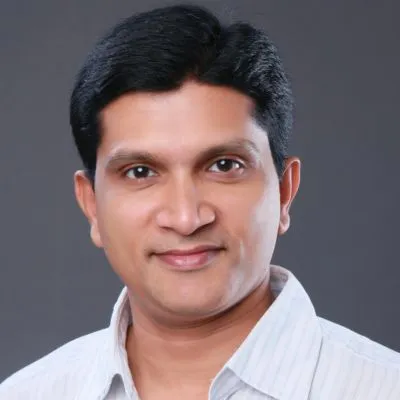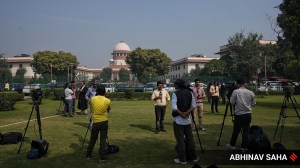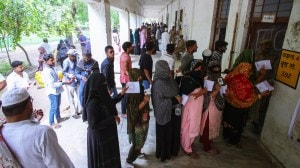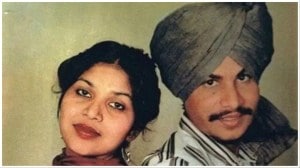- India
- International
Supreme Court directs Kerala: Frame separate Sabarimala law
On Wednesday, a bench of Justices N V Ramana, R Subhash Reddy and B R Gavai said the State of Kerala had said in August that it will make a new law “but as on today, no further progress has been made”.
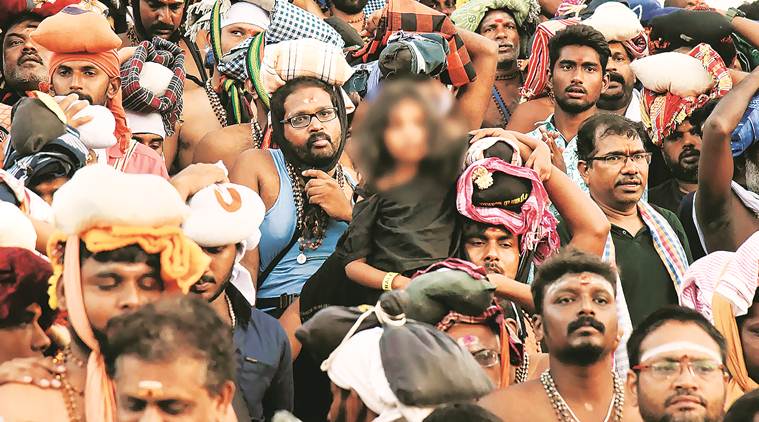 Devotees stand in queue to offer prayers at Lord Ayyappa temple in Sabarimala, Tuesday. (PTI)
Devotees stand in queue to offer prayers at Lord Ayyappa temple in Sabarimala, Tuesday. (PTI)
Conveying its displeasure to the Kerala government for not framing a law exclusively for the management of the Sabarimala hill shrine despite an undertaking earlier, the Supreme Court Wednesday directed the state to come up with such a legislation by the third week of January.
The direction comes six days after a Constitution Bench, in a 3-2 decision, turned to a larger bench, saying the September 28, 2018 judgment lifting age restrictions on the entry of women into the hill shrine may impinge on affairs of other religions too and will require a more detailed examination. Petitions seeking review of the verdict have been kept pending till a bench of seven judges takes a call on the matter.
On Wednesday, a bench of Justices N V Ramana, R Subhash Reddy and B R Gavai said the State of Kerala had said in August that it will make a new law “but as on today, no further progress has been made”. It asked the state to take into consideration the report of the Justice Chandrasekhara Menon Commission while framing the law. The commission, which was constituted in the aftermath of the January 1999 stampede which killed 52 pilgrims, had mooted an independent administrative body for the hill shrine.
“Two-three months not sufficient for you,” Justice Ramana asked senior advocate Jaideep Gupta who appeared for the state government.
The bench said that an amendment Bill — The Travancore-Cochin Hindu Religious Institutions (Amendment) Bill, 2019 — had been submitted to it which proposed a common law for administration of Sabarimala and other temples currently falling under the Travancore Devasom Board. It said Sabarimala, where lakhs of pilgrims visit every year, has to be kept separate.

“You have proposed one administration for thousand temples… It’s unmanageable,” Justice Ramana told the state counsel.
Stating he did not know the contours of the Bill, Gupta said the state will follow the court’s orders.
The bench pointed out that there were already many working models like the one for administration of Tirupati, Guruvayur and Sidhi Vinayak, and that Sabarimala too will need something on those lines.
The bench also questioned the state on the amendment Bill proposing that one-third of the members of the temple advisory board will be women and wondered what would happen to it if the larger bench, which will look into issues suggested by the Constitution Bench, takes a stand different from what was decided in 2018.
Gupta replied that in such an event, the proposed members would be women above the age of 50.
Justice Gavai also referred to the 2018 judgment which had lifted the age restrictions. The state’s lawyers replied that it was a topic of discussion outside the court too.
Gupta said that even in the case related to the administration of the Padmanabhaswamy temple, the state had said that it will follow the model currently in operation at Guruvayur.
Justice Reddy sought to know if the proposed commissioner was an IAS officer, and added that a senior officer can be put in charge.
The bench was hearing a plea by Revathi Nal P Ramavarma Raja of the Pandalam royal family, represented by senior advocate K Radhakrishnan, seeking constitution of a separate committee for the administration of the temple. He first moved the Kerala High Court and its order was challenged in the Supreme Court in 2011.
Apr 26: Latest News
- 01
- 02
- 03
- 04
- 05











